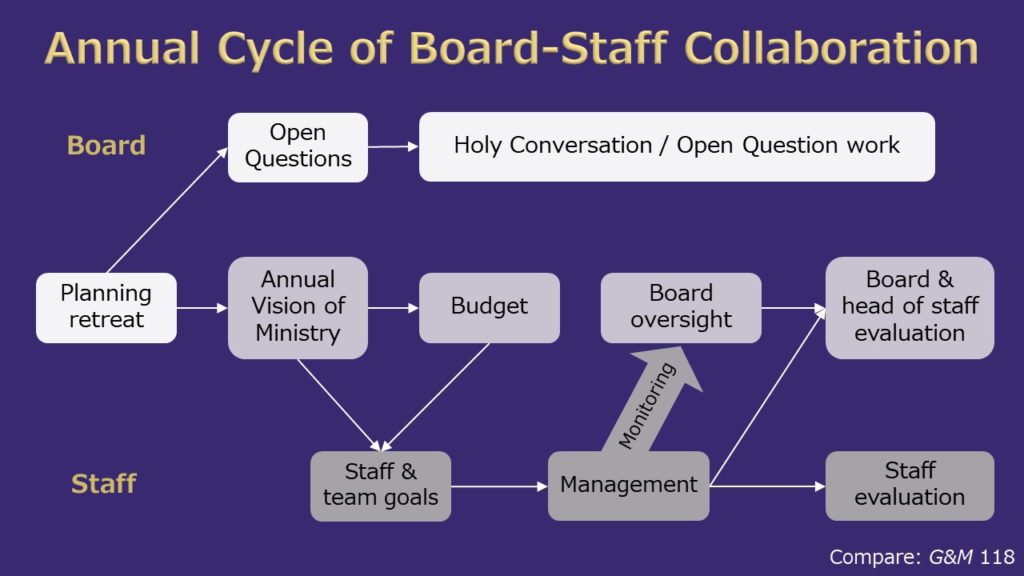Leaders of small congregations often say, “We can’t afford to hire as many people as we need.” Leaders of large congregations say the same thing! If your vision is ambitious, you will always need more staff than you can afford, no matter what resources you have at your disposal. Fortunately, there is another way.
 Dan Hotchkiss
Dan Hotchkiss
Two Kinds of Planning
“Plans are worthless, but planning is everything.” This military paradox, memorably stated by President Dwight Eisenhower, is particularly salient for congregations in this moment. So much has changed, so much is changing. Planning can seem useless when we are so likely to be forced to lay our plans aside and improvise. Some say the world is changing so fast that “planning” is outmoded altogether.
I disagree.
What Should I Do about the Elders?

When I was a young seminarian, I worked in a factory that made doorknobs for historic buildings. In class I studied new, improved ideas about faith and life. At the W.C. Vaughan Company—working with Joe, Homer, and Fred—I learned to value what my elders had to teach.
That was more than forty years ago! Today pastors often ask me, “What should I do about the Elders?” They’re talking about the old guard—longtime and former leaders. Different congregations call them Deacons, Past Presidents, the Women’s Fellowship, or something else. Sometimes Elders have no formal name at all—but rest assured, if your congregation has existed for more than a decade, they do exist! Like Joe, Homer, and Fred, they can be challenging, but have a lot to teach.
Lap Number Two

I used to run laps—now I am more apt to walk. Either way, I find that if I can muster the will power to begin, I can almost always finish the first lap. But if the loop is too short for a full run, I’m faced with a decision: should I quit or start my second lap? Lap number two is where adrenaline leaves off and perseverance gets its test. As we move out of 2020 into 2021, clergy and lay leaders face the challenge of rekindling energy for a year of new and different challenges.
Updated “Annual Cycle” diagram
This is an updated version of a diagram in Governance and Ministry: Rethinking Board Leadership, 2d ed., page 118: A key annual event is the board’s planning retreat. The senior clergy leader always participates, and depending on the planning focus in a given year, the board invites others to participate as well. The retreat agenda …
How Boards Plan
Around the world this fall, boards gather at their online tables to ask, “What kind of congregation can we be in this strange time? When and how can we return to ‘normal,’ and what will that even look like?” Some deny the possibility of planning in such times, but without deliberate planning, habit and momentum rule. Without structure, planning conversations run in circles or explode in conflict. At this time even more than most, boards need structured ways to talk about the future.
How to Be Transparent About Money

“I wish we were more transparent about our finances.” For almost every problem congregations face, transparency is one proposed solution. Treasurers and business managers—who work hard to produce honest, accurate reports—often are surprised by the implication that they’re hiding something. Transparency is good, but flooding people with more data rarely solves the problem. True transparency requires a plan to give financial information to each of four distinct audiences.



